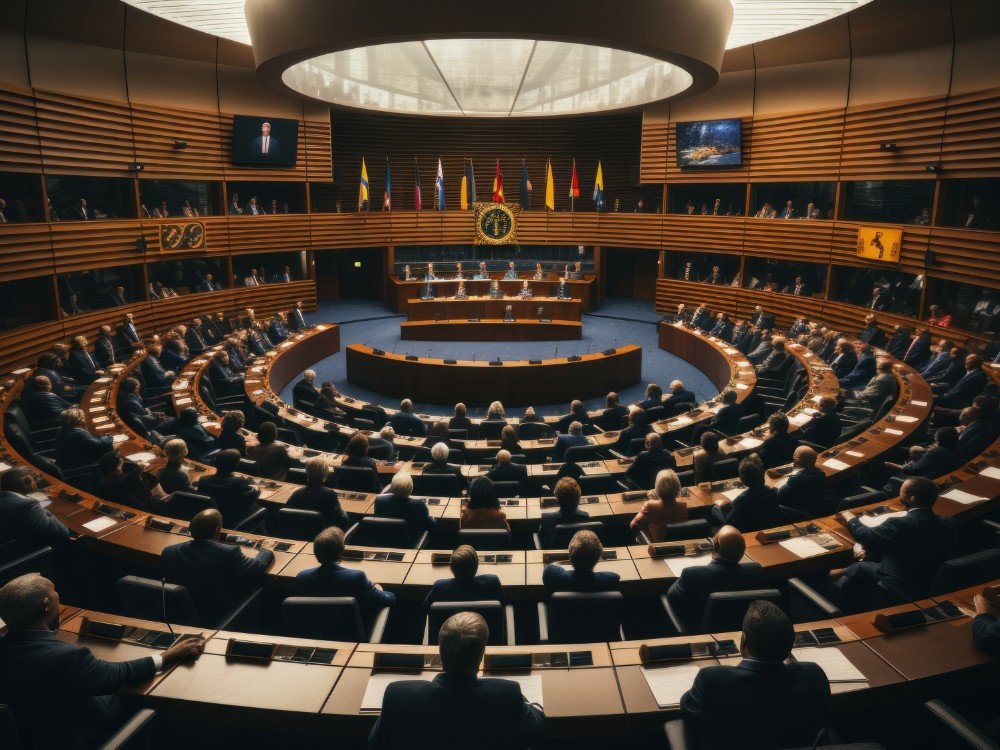How BRICS Reinforces Global Influence Through the Bandung Effect
The global power landscape is undergoing a significant transformation, with emerging economies seeking to assert their influence on international affairs. The BRICS coalition—consisting of Brazil, Russia, India, China, and South Africa—has emerged as a pivotal player in this shifting paradigm. By leveraging the Bandung Effect, BRICS aims to enhance its global influence and foster cooperation among developing nations.
Understanding the Bandung Effect
The Bandung Effect refers to the spirit of solidarity and cooperation among countries that originated from the Bandung Conference in 1955. This historic event marked the first large-scale gathering of Asian and African countries to discuss peace, independence, and economic cooperation. Over the decades, the principles of the Bandung Conference have evolved into a framework for developing nations to unite in pursuit of common goals.
BRICS: A New Force in Global Dynamics
BRICS has harnessed the Bandung Effect to cultivate a sense of unity and shared objectives among its member states. This coalition represents a substantial portion of the world’s population and economic output, making it a formidable player on the global stage. BRICS countries have committed to bolstering economic ties, technological cooperation, and political collaboration.
Economic Collaboration
- Boosting Trade: BRICS nations have prioritized enhancing intra-group trade, reducing dependence on Western markets.
- Development Banks: The establishment of the New Development Bank has facilitated funding for infrastructure and sustainable development projects in member countries.
Technological Cooperation
Technology is at the heart of BRICS’ strategy to increase its global clout. The coalition has focused on fostering innovation and developing technologies that address the unique challenges faced by developing nations.
- Joint Research Initiatives: Collaborative research programs are thriving in various sectors such as renewable energy, agricultural technology, and healthcare.
- Knowledge Sharing Platforms: BRICS has established forums for experts and policymakers to exchange insights and solutions.
Political Engagement
In the realm of global politics, BRICS serves as a counterbalance to traditional Western powers. Its members collaborate on issues ranging from climate change to global security concerns, amplifying their collective voice in international forums.
- Unified Diplomacy: BRICS employs coordinated diplomatic efforts to present a unified stance on critical global issues.
- Advocacy for Reform: The coalition advocates for reforms in international institutions, promoting a more inclusive and equitable global governance structure.
Challenges and Opportunities
While BRICS presents significant opportunities for its member states, it also faces challenges in maintaining cohesion and achieving its ambitious goals. Diverse political systems, economic disparities, and regional conflicts can impede collaborative efforts. However, the spirit of the Bandung Effect can serve as a guiding principle to overcome these hurdles.
The Bandung Effect highlights the potential for developing countries to shape the global agenda. By drawing on the principles of the Bandung Conference, BRICS reinforces its global influence, projecting a vision of a more balanced and multipolar world order.
As BRICS continues to build on the Bandung Effect, it not only enhances its own stature but also inspires other emerging economies to collaborate in the pursuit of shared objectives. In the coming years, BRICS is likely to play a key role in redefining global alliances and reshaping the international system.



